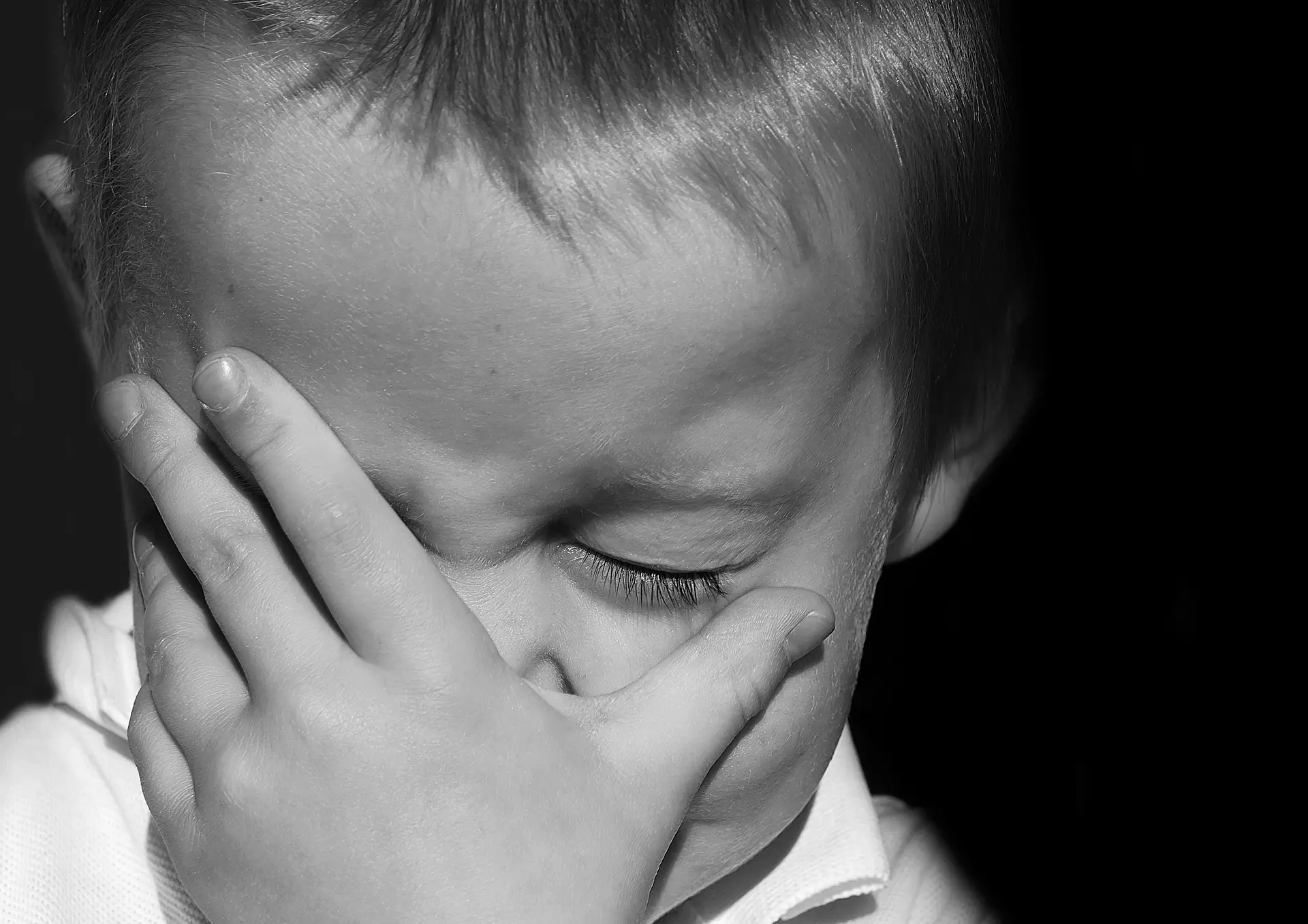Parenting is hard but what is the hardest age to parent? The teenage phase. Part of the struggle tends to be how long it lasts, the fact that it’s a far more relatable conversation than dealing with a screaming kid who can’t speak at all, and generational differences. Combine it with raging hormones, a massive growth change, and social pressure, and even the best of parents have a crockpot full of vinegar and grit with their teens.
Why is Parenting So Hard With Teens?

There is no set time when teenagehood arrives and departs. Some kids start as early as 11 physically, and some are late bloomers. No two kids are alike either, even in the same family or as twins. So, it can be pretty hard trying to compare experiences between parents both raising teenagers, much less someone trying to give advice from 20 years earlier. Girls are very different from boys as well. In fact, in many cases, female teens develop intellectually much faster than boys and show maturity at a faster rate. The flip side is that boys tend to develop physically faster and take on physical adult traits faster as well. Both make for interesting situations again when generalizations are used and don’t apply well.
The key physical indicator tends to be the onset of puberty. Female teens begin to develop physical changes commensurate with potential motherhood in the future, and male teens begin to put on weight, show facial hair and voice changes. However, there is a wide range of how well teens’ mental maturity matches their physical development, which can create a lot of problems for parents.
First Signs There’s a Change Coming
Thanks to a huge amount of hormonal release going on internally, teens typically show their first signs of change in how they behave, adding to why parenting is hard. The most common change tends to be a shift from a child who is generally happy, engaged and focused on expected child behavior to suddenly someone who is moody, short-tempered for no logical reason, short-focused, emotional and erratic. There is also a big streak of looking for and seeking independence in things that separate the teen from the identity of his parents. There is also an increased amount of attention by teens on what their friends think, do, say, want, enjoy and dislike. More than one parent has been in a situation where their teen ignores what they say, but a friend says the same thing and the child believes it immediately.
Parenting is Hard With Repeat Cycles of Friction
Part of what makes parenting teens particularly hard is the fact that it usually involves a recurring series of friction points and conflicts, not just one instance. Often referred to as growing pains, butting heads, arguments, anger management problems and all sorts of other terms, the cycles of friction come and go every month for a number of years until things start to settle down again with age and maturity. One of the causes of this hot/cold pattern tends to first be emotional development. Teen minds generally develop slower than physical changes, which in turn produces a lot of communication issues as they are expected to act older in society and be more responsible than before. At the same time, teens want independence and the chance to carve out their own identity and path, which can be scary for parents who have a boatload of experience in how society treats certain aspects of individuals, good and bad.
At the end of the day, everybody grows up. Just like parents who were once teens, their kids will become adults and will eventually jump into the world fully on their own as well. So, the hard part of parenting involves being able to keep things on track by guiding a teen versus just giving up and relying on avoidance to side-step the friction points that may occur. Teens actually want and need knowledge, experience, perspective and guidance. They are starting to realize there’s a lot they don’t know about the world, and they are going to have to handle it themselves in a few short years.
Teens are also dealing for the first time with a lot of abstract ideas they didn’t have to work with as younger children. Suddenly, a world that seemed very clear in black and white is now blurry gray, which can also be irritating. Nuances and variations begin to conflict with initial values they might have, especially as parents have the role of trying to show them how to take on the world case by case versus bluntly charging forward on simple assumptions. They don’t always want to listen, which can also make parents upset and tired of being patient with someone who can seem self-centered.
Parenting is Hard if You Don’t Do Your Homework
Is it easy to be parent material? In a word, no. It never was, and anyone saying otherwise is probably lying or hiding the truth. From ancient times to now, parenting has always been a passage for both the parent and child. But it does produce an amazing result when parents are engaged.
Once in the clutch, many also ask repeatedly, “Is parenting supposed to be this hard?” However, parents can’t just assume that what they remember from being a teen is enough. Personal education and what makes up teenage thinking has to be refreshed with research and information available today.
For example, the myth was that teens sleep too much or are groggy in the morning because they are lazy. However, scientific research has confirmed that the amount of energy the body goes through transforming in teen years and puberty takes up a tremendous amount of calories, and the body has to rest even more than a normal adult to make up for the internal drawdown.
Fortunately, there’s a lot of literature available online and in print and formatted for easy, fast reading as well. There’s no need to struggle with esoteric academic research papers. Plenty of resources exist now, even for free, that give good, valuable information and advice on preparing for and being a parent of a teenager in 2021, not 1970.
Communicate A Lot

A big mistake involves not talking to their teens and letting them go insular. This comes in different forms, ranging from not having time to talk to not being interested in what teens are talking about to avoidance. Instead, parents need to find ways to give teens a chance to open up and talk about what’s going with their lives, even interests as simple as they sound.
Start off with actively listening, versus half-listening and then dismissing with advice from having been there. Second, ask questions, engage, and find out more, but avoid interrogating or acting alarmed. Third, be an available resource anytime a teen wants to talk, not just when it’s convenient or at the end of the day when tired from work.
Listening helps parents not only become informed and in tune with what their teens are getting involved in, it also helps teens obtain guidance and different perspectives than just their friends and the latest fashion trends. Even if teenagers seem like they could care less, a parent’s input still matters and resonates if there is true communication going on.
Pay Attention to Changes from the Norm
With physical changes come mental changes. Parents need to stay ahead of the curve to handle the related mental baggage or it will catch them by surprise. With a move into physical adulthood, eventually, teens are going to wonder about, find out about and engage in pre-sex activities and sex. Being ill-prepared can result in life-changing mistakes from venereal diseases to early pregnancy to potential criminal situations for unwanted unions. Fortunately, all of these negative situations are preventable, especially if parents stay on the ball and help their teens move through change proactively. Annual physical checkups offer a natural opportunity to discuss topics and keep teens on the right track of what to expect and how to behave. It’s also important for parents of both genders to be involved, to help guide a teen on what to expect behavior with a partner in the future. There should be no delegating of this role. Both parents have a job here to help their teens understand gender, identity and personal differences and how society expects people to behave.
The Internet
The ability to get massive amounts of information immediately through a computer and Internet connection is both good and bad. A tremendous number of topics are at the adult level, but teens with access can also engage and learn about issues they are not always mentally ready to digest. That can create a lot of misdirection and assumptions. Parents should definitely spend time monitoring what their teens are looking at online and giving guidance about that content as well as what they should be avoiding. There is nothing wrong with making teens know their limits and ramifications of not listening. If it means restriction at times, that’s okay too. Boundaries and understanding that there’s a time and place for everything helps teens grow up and adapt to society versus be someone who ends up getting into trouble with adult authorities.
Give a Sense of Privacy
As teens grow, they want their own personal space, their world in a small sense. It’s okay to allow them that liberty with privacy. Parents have to let go of controlling every aspect and barging in on everything that kids are doing. However, associating privacy with good behavior is a good approach as well. Teens should understand their liberties are tied to their behavior. The more they focus on getting along and meeting expectations, the more privacy and latitude should be allowed. On the flip side, the more negative the behavior, the less liberty should be allowed. This approach is in line with societal expectations of adults, and it teaches teens quickly how to restrain themselves correctly as well as obtain rewards, a key skill for later adulthood.
Is There Light At the End of the Tunnel?
Yes, parenting is hard, but there is an end to teenage angst. If there wasn’t, none of us would eventually have become parents ourselves. Believe it or not, the teen years are short, and they do pass very fast, even if it doesn’t feel like that at the time with a blowout every other day. At the end of the day, teenagehood is about becoming an adult, and every teen eventually gets there, sooner or later.






